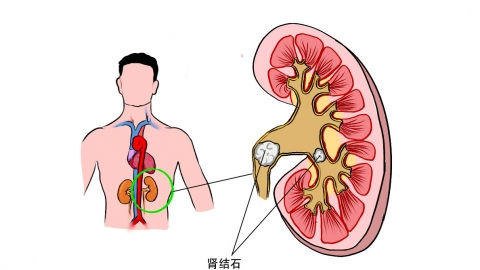What should not be eaten with kidney stones?
Generally, patients with kidney stones should avoid eating foods such as spinach, pork liver, beets, chocolate, and strong tea. They should also avoid taking medications including vitamin C effervescent tablets, ammonium chloride tablets, furosemide tablets, vitamin D drops, and aspirin enteric-coated tablets. Detailed explanations are as follows:
1. Food
1. Spinach
Spinach contains large amounts of oxalic acid, which easily combines with calcium in the body to form calcium oxalate, a common component of kidney stones. Consuming excessive spinach may elevate oxalate levels in urine, potentially causing existing stones to grow larger or triggering new stones, thus worsening the condition.
2. Pork Liver
Pork liver is a high-purine food. Purines metabolize into uric acid in the body. Excess uric acid tends to form urate crystals, which, when deposited in the kidneys, can form uric acid stones. These crystals may also affect the solubility of other components in urine, promoting stone formation.

3. Beets
Beets are rich in oxalic acid, which combines with calcium in the human body to form calcium oxalate, a substance that is not easily dissolved. For patients with kidney stones, this can increase the saturation of calcium oxalate in urine, raising the risk of stone formation and growth, which is detrimental to controlling the condition.
4. Chocolate
Chocolate contains high levels of oxalic acid and theobromine. Oxalic acid promotes the formation of calcium oxalate stones, while theobromine may affect the kidney's ability to reabsorb water, leading to concentrated urine. This increases the concentration of stone-forming components in urine, creating favorable conditions for stone formation.
5. Strong Tea
Strong tea contains large amounts of tannic acid, which combines with calcium in the gastrointestinal tract to form insoluble calcium tannate. This not only affects calcium absorption but may also deposit in the kidneys when excreted through urine, increasing the likelihood of stone formation. Additionally, strong tea has a significant diuretic effect, which may also lead to concentrated urine.
II. Medications
1. Vitamin C Effervescent Tablets
Excessive intake of vitamin C effervescent tablets causes surplus vitamin C in the body to convert into oxalic acid, increasing oxalate levels in urine. This makes it easier for calcium to combine with oxalic acid to form calcium oxalate stones, worsening the condition of patients with kidney stones. Self-administration of large doses should be avoided.
2. Ammonium Chloride Tablets
Ammonium chloride tablets are acidic drugs; after administration, they make urine more acidic. For patients with uric acid stones or cystine stones, acidic urine reduces the solubility of uric acid and cystine, making these substances more likely to crystallize and precipitate, resulting in larger or more numerous stones.
3. Furosemide Tablets
Furosemide tablets are potent diuretics that accelerate water excretion from the body, leading to concentrated urine. When urine is concentrated, the relative concentration of stone-forming components (such as calcium, oxalic acid, uric acid, etc.) increases, making it easier for these substances to deposit and form stones, which is detrimental to the recovery of patients with kidney stones.
4. Vitamin D Drops
Vitamin D drops promote calcium absorption in the intestines. Excessive intake can cause elevated calcium levels in the body, with the excess calcium excreted through the kidneys. This increases calcium concentration in urine, making it easier for calcium to combine with oxalic acid and other substances to form stones, thereby increasing the burden on the kidneys.
5. Aspirin Enteric-Coated Tablets
Long-term or high-dose use of aspirin enteric-coated tablets may affect normal kidney function, leading to kidney damage. Reduced kidney function affects urine excretion and metabolism, hindering the elimination of stone-forming components and increasing the risk of stone formation, which is unfavorable for controlling the condition of patients with kidney stones.
In daily life, adequate water intake should be maintained to promote urine excretion and reduce the likelihood of stone formation. Medical attention should be sought when necessary, and treatment and dietary adjustments should be conducted under the guidance of a physician.





